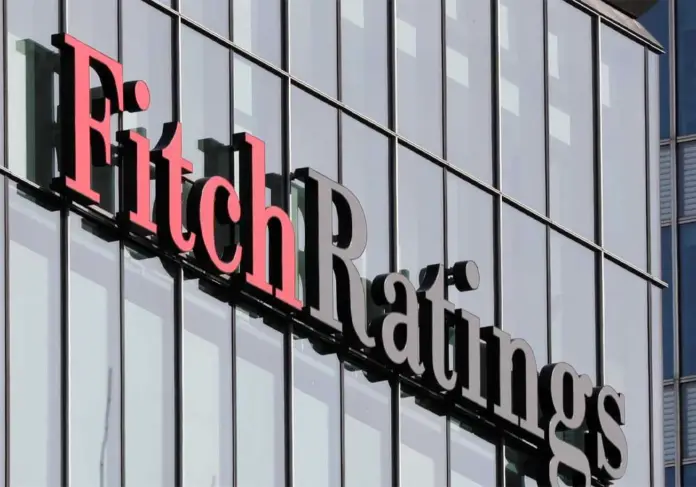Fitch Ratings has revised Pakistan’s outlook to negative from stable, while affirming its long-term foreign-currency (LTFC) Issuer Default Rating (IDR) at ‘B-‘.
According to the report available on its website, the factors involved in revising Pakistan’s outlook include:
Risks to adjustment and financing, political risks, reserves under pressure, external deficits, large funding needs, fiscal worsening then consolidation, debt expected to decline, other debt metrics mixed, high inflation, monetary tightening, overheated economy along with falling growth
Considerable risks
Fitch report has said that the renewed political volatility could not be excluded and could undermine fiscal and external adjustment, especially in the current environment of slowing growth and high inflation.
The report also said that the State Bank of Pakistan (SBP) has used reserves to slow currency depreciation. Liquid net foreign exchange reserves at the SBP declined to about $10 billion, down from about $16 billion a year earlier.
It also mentioned that fiscal tightening, higher interest rates, measures to limit energy consumption and imports underpin the forecast of a narrowing current account deficits (CAD) to $10 billion (2.6% of GDP) in FY23.
The Fitch report has stated the public debt maturities in FY23 to be about $21 billion. Fiscal deficit widened to 7.5% of GDP (nearly PKR5 trillion) in FY22, from 6.1% in FY21.
Forecast of average inflation of 19% in FY23 and 8% in FY24 means that inflation is skewed to the upside.
According to the Fitch Ratings report, Pakistan has an ESG Relevance Score (RS) of ‘5’ for both political stability and rights and for the rule of law, institutional and regulatory quality and control of corruption.
Rating sensitivities
According to Fitch report, factors that could, individually or collectively, lead to negative rating action/downgrade are:
Lack of improvement in external liquidity and funding conditions; fiscal policy reversal undermining IMF program performance and disbursements.
On the other hand, factors that could individually or collectively lead to a positive rating include rebuilding of Pakistan’s foreign-currency reserves and easing of external financing risks
ESG (Environmental, Social and Governance) considerations
Pakistan has an ESG Relevance Score of ‘5’ for political stability and rights.
Pakistan has an ESG Relevance Score of ‘5’ for rule of law, institutional and regulatory quality and control of corruption.
Pakistan has an ESG Relevance Score of ‘4’ for human rights and political freedoms.
Pakistan has an ESG Relevance Score of ‘4’ for creditor rights.
To read the report, click here







